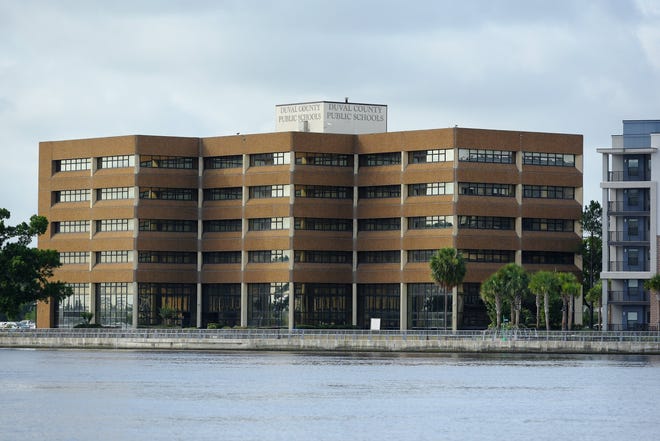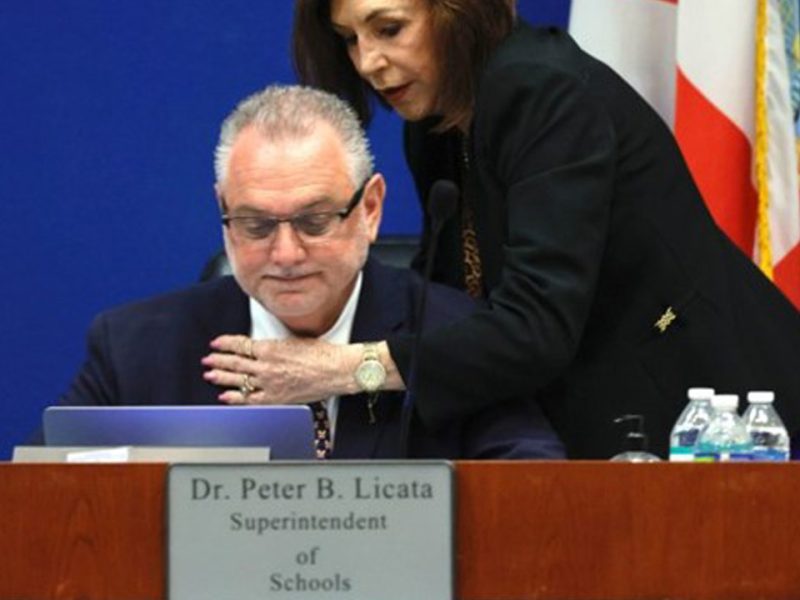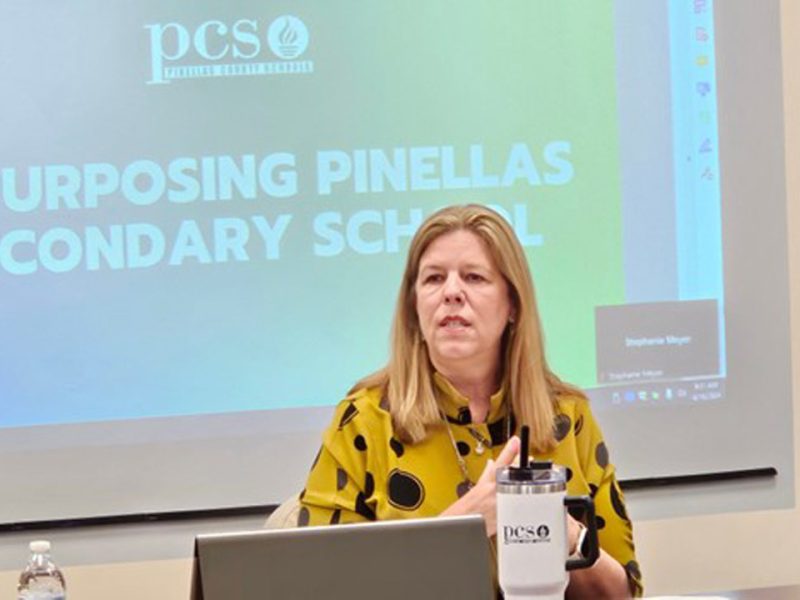
Why Duval School leaders believe a property tax increase is necessary
The Florida Times-Union | By Emily Bloch | February 22, 2022
In the last five years, Duval County Public Schools saw enrollment in their traditional schools shrink by about eight percent.
At the same time, the number of students enrolling in existing and new charter schools increased by about 46 percent.
And sparked in part by the pandemic, low pay and burnout, more and more teachers are leaving the classroom, leaving the district with an unprecedented vacancy rate of about 400 teachers.
All of that combined leaves the district fighting to stay competitive.
Superintendent Diana Greene says a property tax could help.
Last week Greene pitched School Board members on a 1-mill property tax increase, which could bring in at least $81 million annually for a four-year period. Voters would need to approve tax increase if the School Board agrees to move forward in the process. The tax would have to be re-approved by voters every four years to renew it.
In 2020, voters in Duval County approved a half-cent sales tax increase to provide the district with $1.9 billion to improve the school buildings and add new technology.
Greene said the bulk of added revenue from a property tax increase would go into three buckets: teacher salaries, upgrading sports facilities and reinvesting in arts programs. Some revenue would also go to charter schools, as required by law, and to school staff.
“This is what is needed to move our district to the next level,” Greene said.
Jacksonville Public Education Fund President Rachael Tutwiler Fortune said the tax could make a significant impact when it comes to teacher retention rates in Jacksonville.
“Low pay is one reason many teachers are leaving the profession and is also a barrier to people deciding to become teachers,” she said. “JPEF’s research over the past decade shows there is strong community support for paying more for education, including teacher salaries.”
Tax increases linked to distinct programs tend to go over well, unless they become polarized, said Michael Binder, faculty director of the University of North Florida’s Public Opinion Research Laboratory.
“Generally speaking, voters are less averse to tax increases if they are tied to specific programs, i.e. the half cents for capital improvements to schools or the recent gas tax increase for infrastructure,” he said. “But — and this is a big but — if the issue becomes politicized and one party becomes a vocal opponent, it would make for a much harder hill to climb.”
On Twitter, City Council member has Rory Diamond criticized the property tax pitch, writing, “wasn’t the sales tax increase enough?”
The School Board is expected to discuss the possible voter referendum during its March 1 meeting. The Jacksonville City Council would approve the logistics, including when the referendum appears on ballots.
Teacher shortages
In Duval County, the average base salary of $47,458.26 is ranked 40th out of 69 for average teacher salaries statewide. Greene said a mix of COVID-19 related issues, burnout and low pay is prompting educators — particularly more experienced teachers — to leave the district earlier than anticipated.
Greene says teacher vacancies are at an all-time high in Duval County. Public records show 466 instructional vacancies as of this month. Instructional vacancies have increased by 98 percent since the start of the pandemic in 2020.
“If they are leaving us, that bodes even worse for our schools that are struggling,” Greene said, adding that traditionally secondary schools saw the most vacancies, but now elementary schools have gaps, too. “That has not been a trend in the past. It’s trying to burn this candle at both ends. We need to recruit teachers, our pool is shrinking and once we get them into our district it’s about retaining them.”
The plan is for 65 percent of the property tax revenue to go toward teachers’ salaries either through a tiered system or an equal amount across the board.
Greene said higher scoring, longtime teachers are also leaving the district to go to neighboring school districts. She said property tax revenue — which would be distributed to teachers as a supplement on top of their already negotiated and agreed-upon salary — could help minimize pay disparities veteran teachers are feeling.
Last year, teachers’ starting salaries in Duval were raised to $47,500 as part of a push from Gov. Ron DeSantis’ administration to improve retention rates. But critics noted that raising base pay alone would do little to keep longtime teachers invested.
“A third-year teacher in our district over the last three years went from making $39,500 to over $47,500. But that’s the same as a teacher who has been teaching with us for 18 years,” Greene said. “That’s what we’re trying to cure.”
Athletics and arts
In competing with the neighboring charter, private schools and even home-schooling experiences, district personnel say their leverage comes from boosting student culture and climate on campus.
District officials believe a focus on improving the experience for student athletes and those interested in the arts could help. Greene’s proposal to the board showed that 12.5 percent of the potential property tax revenue would go toward improving such areas as athletic fields, performing arts centers, recording studios and upgraded equipment.
While there are exceptions, typically charter schools do not have their own athletic teams.
That’s an area where the district already stands out.
But district leaders say in order to keep a competitive edge, they need to overhaul longtime issues across the district, including high school tracks with poor drainage, football fields that have seen better days and playgrounds that need replacing.
According to Greene, revenue from the property tax would go toward athletic upgrades including replacing high school football fields with lower maintenance turf fields.
On the arts side, dated lighting and sound systems, broken musical instruments in need of repair and dated band uniforms could all benefit from the funding.
Why can’t the sales tax revenue or the district’s existing budget cover this?
The half-cent sales tax revenue can only be used for facility maintenance, security and technology upgrades, repairs and renovation and is earmarked for large-scale issues like replacing roofs and air conditioning systems as well as expanding and replacing school buildings. In contrast, Greene said this tax revenue would go toward personnel, programming and facility upgrades that benefit arts-focused students and student athletes.
School Board member Lori Hershey says passing a tax that will be shouldered exclusively by property owners in a climate where homeowner costs are soaring may not be the right path to take.
“My concern is that this only impacts homeowners,” board member Lori Hershey said, whereas the sales tax is imposed on anyone spending in Jacksonville.
The current property tax rate for the city of Jacksonville is 11.4419 mills, which raises about $11.44 in taxes per $1,000 of taxable property value. For the owner of a $125,000 home in Duval County with a $25,000 homestead exemption for school taxes, one mill would add $100 to the annual property tax bill.
When asked if the district could figure out a way to fund goals for salary boosts and arts and athletics upgrades without the tax revenue, Greene said that the budget wouldn’t allow for this level of impact.
“The salary supplements we’re talking about would not be plausible without major cuts to services that impact students, as well as healthcare and other employee benefits,” Greene said. “Does it require going back every four years if the supplement is valued?Yes. Are there districts that do it? Yes. If our district is good stewards for our community, our community will stand up [and vote for it every four years].”
Other large school districts, including Broward, Palm Beach and Miami-Dade, use millage supplements to boost their salary amounts. Still, there are hesitations. Even among teachers who could benefit from the supplement.
On private social media channels, some teachers lauded the potential aid while others said salary is only a piece of the puzzle when it comes to educators leaving the field early.
“At this point, we haven’t made a decision,” School Board Chairman Darryl Willie said. “These are just the talking points and we’ll make a decision on March 1.”





